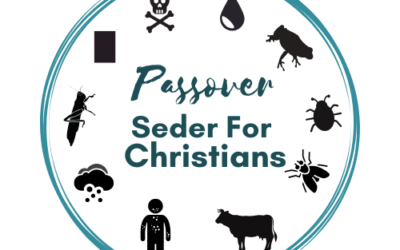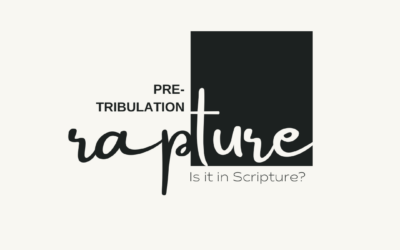


Coming out of Tradition, and Learning the Truth
Why does the modern “church” of Christianity cling so tightly to roman rooted traditions? Traditions God himself said not to engage in? Why do we twist Paul’s words (as Peter warned about) to fit doctrines that sooth our “itching ears”?
Is lying wrong? If so, why do we lie to our children every December, and try to justify it? Why do we teach Jesus dies on Friday and raises back to life on Sunday when that is not 3 days and 3 nights as scripture tells us is proof he is messiah? Why do we misquote Jesus?
Coming out of the world and turning to the truths of the scripture, the whole scripture, not just that last one-third of it, and really seeking his face will bless you in the ways you cannot imagine.
We must reject the cultural trends and follow the truth. We are not to “coexist” we are to be “set apart” which is the meaning of “holy”. If you want to be holy, to be a set apart people for God, then keep reading and searching. Peace and blessings to you.

However, do not take our word for it. Please study the scriptures for yourself. See it with your own eyes, and pray that our Father, YHVH, reveals himself to you. He promises that if we seek him, we will find him. Ask him, and you will receive. [Matt 7:7 and Luke 11:9] We pray the information in this website will bless you as it does us and that you will join us in celebrating God the way we wants us to.


God has Declared His Holidays
We discovered in scripture that God actually has specially designated holidays, so why don’t celebrate we any of them??? For example, God commanded us as a statute forever to follow HIS feast days.
Leviticus 23:4: These are the appointed times of Yehovah, holy convocations which you shall proclaim at the times appointed for them.”
God then goes on in Leviticus to explain the spring festivals of Passover, Unleavened Bread, First Fruits and Shavuot (Pentecost).
God tells us that these Festivals are “a perpetual statute throughout your generations in all your dwelling places.” (Lev. 23:14, 21 and 31)
Each of the appointed festivals of Yahweh is a prophetic shadow picture of things to come. God tells us the end from the beginning and his festivals are remembrance for what He has done, and rehearsal for Messiah’s next coming.
Although we cannot go up to Jerusalem since the temple is gone, we are to still celebrate the feasts as commanded. These feasts are called moedim (mo-eh-deem) in Hebrew. It means “appointed times”. Think of them as special date nights Yehovah has set aside to spend special time with us.
We had no idea that God has festivals he created not only for us to enjoy, but as a guide to the story of our salvation and a rehearsal of things to come. It was easy for us to give up 2 man made holidays, for 7 of God’s!
Deuteronomy 16:16: “Three times in a year all your males shall appear before the LORD your God in the place which He chooses, at the Feast of Unleavened Bread (week of Passover) and at the Feast of Weeks (Shavuot aka Pentecost which is 50 days after First Fruits) and at the Feast of Booths (also called Tabernacles or Sukkot), and they shall not appear before the LORD empty-handed.”
This of course did not exclude women, it only meant that as a male, you represented your household before the Lord. Pastor Mark Biltz jokes it’s because women want to go to God’s parties naturally, men have to be told to. Usually the entire family went up for the feasts. When Yeshua was crucified as the Passover Lamb, there were 2.5 million Jews in Jerusalem for the feast.
Exodus 23:14 “ Three times a year you shall celebrate a feast to me”
Of the moedim, three feasts were ones that you traveled to the temple for, and the rest you stayed at home. Passover, Shavuot (Pentecost) and Tabernacles (Sukkot), were all large gathering feasts. Unleavened Bread and First Fruits directly followed Passover in the same week, so they are often lumped into the celebration that is now generally referred to as Passover. The Day of Trumpets and Day of Atonement are in the same month as Tabernacles, but not traveling events.
Sabbath
The weekly Sabbath or Shabbat in Hebrew is a weekly day of rest, holy to the Lord. We are to keep it holy. Holy means “set apart”. God specified this in the very beginning in Genesis, when he rested on the 7th day from the work of creation. He again strengthens it’s importance as the 4th of the 10 commandments and throughout scripture. In fact, it is the most written about of all God’s instructions. It is a sign of those in covenant with him as his followers. Shabbat is a weekly observance. During feast days there are additional Sabbaths,(days of rest), separate from the weekly Sabbath.
Spring Festivals
The spring festivals proclaimed the coming of Yeshua ha’Messiach (Jesus the Messiah) who was crucified on Passover (as the Passover lamb). He was buried in the ground and raised again after 3 days and 3 nights during the Feast of Unleavened Bread. He rose at the onset of First Fruits.
He is the First Fruits of Yehovah and He gave us the Torah on Mt. Sinai (often called the “Law” but actually means “instructions” in Hebrew) as well as the gift of the Holy Spirit on Shavuot (Pentecost), which is 50 days after the First Fruits. Pentecost means “50” in Greek. (7 sabbath weeks plus one day = 50). Because you count for 7 Sabbaths, Shavuot is often called the Feast of Weeks.
Fall Festivals
The fall feasts proclaim Yeshua’s return as the Messiah on the Day of Trumpets (Yom Teruah), the final climactic last day of this age will be on the Day of Atonement (Yom Kippur) and then we enjoy the wedding feast of the Church (bride) with Yeshua (groom) at Sukkot which is the Feast of Tabernacles (also called the Feast of Booths) when He reigns for 1000 years on Earth. It is also noted in scripture that the Feast of Tabernacles will still be observed during that Millennium Zechariah 14:16
We hope this primer will help our family and friends understand that we are following Jesus (Yeshua), the things he did and commanded us to do as his followers. We are choosing to follow him and not follow the things of the world. That is all.
We recommend teachings from Bill Cloud of Jacob’s Tent Fellowship, and Shoreshim Ministries. You can watch Jacob’s Tent on Shabbat (Sabbath) live for services.
For some resources that will help we recommend 119 ministries teachings, especially “The Pauline Paradox”
Torah Class by Tom Bradford is excellent for in depth teaching, especially understanding the Levitical Sacrificial System.
Triumph in Truth has great videos for the new follower of the Way of Yeshua our Messiah (Jesus Christ)
New 2 Torah has a ton of videos on YouTube as well as resources on their website with a really fun take on things.
Torah Sisters is a website for women, with some good information on homeschooling and recipes.
Michael Rood has excellent series of videos on holidays, God’s Calendar and more.
El Shaddai Ministries with Pastor Mark Biltz has some excellent teachings on the prophetic blood moons and God’s calendar.
All the videos are free, and most are not only on their websites, but also their Rumble, Brighteon or YouTube channel you can subscribe to. Leviticus 23 outlines God’s “laws” (instructions for living) as well as chapter 16 and Exodus 12.
Bible Studies
Passover Seder For Messianic Christians
Christian Believers Passover SederHag Sameach Pesach-Happy Passover! If you have decided to trade easter ham for Passover Lamb, you are in the right place! We hope you find this seder (which means "order") easy to use and a blessing to you as you search to...
read moreIs Pre-Tribulation Rapture Biblical?
Is the Pre-Tribulation Rapture Biblical? Where did Rapture Theory Come From? Overall Concept: The origin of dispensationalism began in the 19th century and its modern concept of a pre-tribulation “Rapture”. We aim to clarify how this theology emerged,...
read more8 Days of Hanukkah Scripture Reading Guide
Hanukkah Reading Guide:8 days of Devotionals for Historical and Scriptural LearningThe story of Hanukkah teaches us about a small group of men led by the example of their patriarch Mattathias, and then his son, Judah the Hammer (Maccabee) who were...
read more


